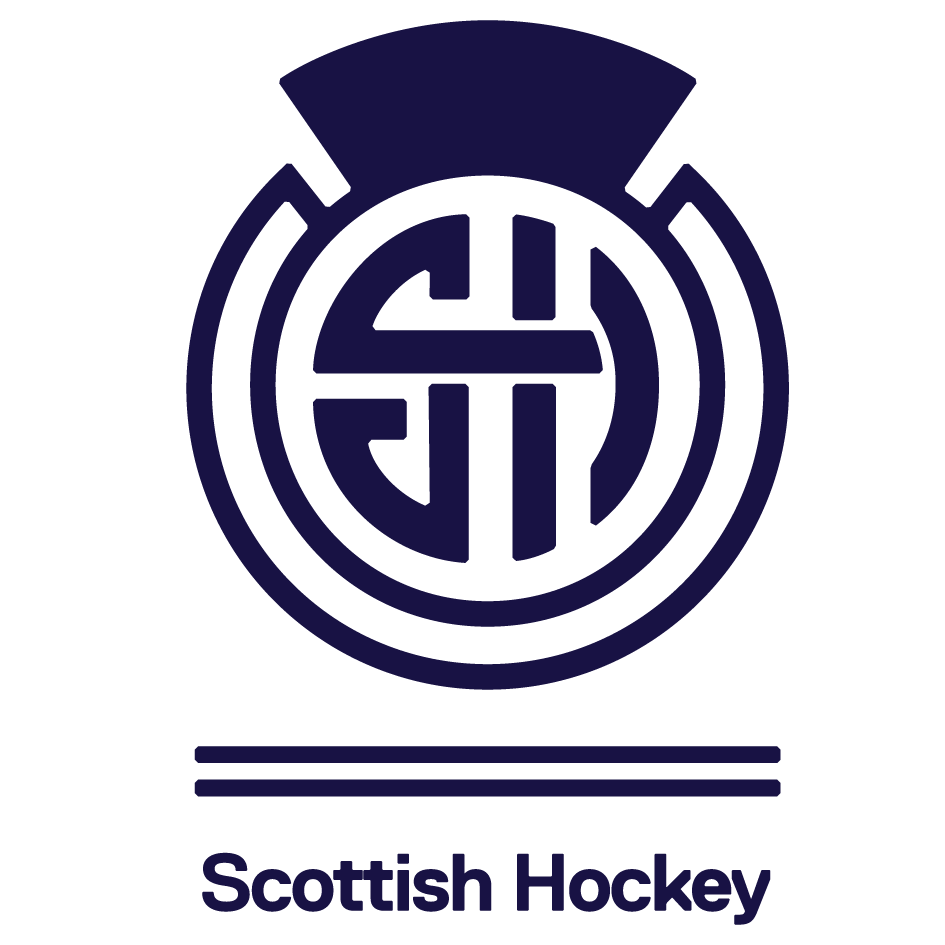Talent squad selections announced
The talent squads have been announced for the National Emerging Girls’ and Aspiring Girls for 2022.
The players in these squads have great development opportunities in the year ahead of them including series matches against France; Czech Republic; Switzerland; England; and Ireland, along with regular training camps.
Aspiring Boys National Selection and Talent Confirmation Period Extended until April.
Following this seasons Academy Series and pre-Christmas Talent ID Day, 36 potential Scottish Aspiring Athletes were identified to partake in a final talent confirmation phase in late December 2021 and early 2022.
Following the postponement of the first talent confirmation camps due to poor weather, a collective decision was made to extend the final selection of the Aspiring squad until Easter. This gives all the players a number of further training opportunities to impress the coaching team with their hockey ability, willingness to learn and personal characteristics, in advance of what will be an exciting summer of international hockey.
Head of Performance, Andy Tennant, said,
“We are pleased to be formally announcing the athletes that have been selected for out talent and performance programmes for 2022. It is important to us that there is greater transparency and recognition for those who have earned selection at this stage. We are also delighted that in line with the Brave Performance Blueprint, we are able to cater for significantly greater numbers of athletes in our programmes, to give more athletes, more opportunities, more often.
“It is also important to note that phase 2 of the Brave Academy Programme will also see a fresh intake of talent. This highlights our commitment to ensure that the assessment of talent is a year round activity, with many more opportunities for emerging and aspiring young athletes to be seen and selected, while also encouraging those within programmes to keep working hard.
“These are exciting times for young players to be involved in performance hockey in Scotland, with more opportunities to train and play at a higher level than ever before – and we look forward to an exciting summer of hockey ahead.”
*Players may be added to the squads at the discretion of the coaching teams
National Emerging Girls’ Squad
Charlotte Robertson (Open Trial / Watsonians)
Emily McLean (Edinburgh Lightning / Inverleith)
Anika Erin Miedema (Edinburgh Lightning / Edinburgh Academy)
Olivia Simmers (Glasgow Thunder / GHK)
Sarah Hill (Open Trial / Repton)
Jennifer Lane (Edinburgh Lightning / Inverleith)
Abigail Moffat (Dundee Devils / Dollar Academy)
Marianna Maclean (Edinburgh Lightning / Grange)
Ella Mundell (Edinburgh Lightning / Fjordhus Reivers)
Iona Reid (Glasgow Thunder / GHK)
Riley Thomson (Dundee Devils / Perthshire)
Orla Roberts (Edinburgh Lightning / Edinburgh HC)
Kirsty Wicklow (Glasgow Thunder / GHK)
Amber Wade (Glasgow Thunder / Uddingston)
Ella Richie (Glasgow Thunder / GHK)
Cara Falconer (Open Trial / Woking)
Darcy Littlefield (Edinburgh Lightning / Watsonians)
Lucy MacMillan (Glasgow Thunder / Western Wildcats)
Lily Creighton (Glasgow Thunder / Uddingston)
Emma Murray (Glasgow Thunder / Clydesdale Western)
Emma Christie (Dundee Devils / Merlins Gordonians)
Tallulah McMorris (Edinburgh Lightning / Edinburgh HC)
Kate Bole (Edinburgh Lightning / Grange)
Ruby Crawford (Edinburgh Lightning / Watsonians)
Aine Coad (Open Trial / Edinburgh HC)
Jessica Main (Edinburgh Lightning / Fjordhus Reivers)
Marissa Maclean (Edinburgh Lightning / Grange)
National Emerging Boys’ Squad
Ronnie Brown (The Edinburgh Academy)
Lewis McGuinness (Uddingston Hockey Club)
Archie McLean (Clydesdale Hockey Club and Hutchesons Grammar School)
Edward May (Cala Edinburgh Hockey Club and Fettes College)
Callum Darroch (Uddingston Hockey Club)
Robbie Molloy (Western Wildcats and Glasgow School of Sport)
Charlie Feeney (Kelburne Hockey Club)
Lewis Mutch (Gordonians Hockey Club and Robert Gordons College)
Kyle Flockhart (Hillhead Hockey Club and Lenzie Academy)
Luke Bannerman (Western Wildcats)
Gus Inglis (Inverleith and The Edinburgh Academy)
Calum Bradford (Gordonians Hockey Club and Robert Gordons College)
Murray Griffiths (Grove Menzieshill and Grove Academy)
Ben Young (Uddingston Hockey Club)
Murdo McDonald (Watsonians Hockey Club and Balerno High School)
Owen Hunter (Watsonians Hockey Club and George Watsons College)
Jack Adams (Cala Edinburgh Hockey Club and Fettes College)
Alfie Bonnar (Grove Menzieshill Hockey Club)
Rory McLean (Inverleith and The Edinburgh Academy)
Freddie Jack (Merchiston Castle School)
Rory Ligertwood (Grange Hockey Club and Loretto School)
Euan Van Aswegen (Perthshire Hockey Club)
Alexander Miller (Inverleith and The Edinburgh Academy)
Thomas Temperley (Inverleith and The Edinburgh Academy)
Josh Love (Dunfermline Carnegie Hockey Club and Queen Anne High School)
Theo wood (Dunfermline Carnegie Hockey Club and Inverkeithing High School)
Ally Paul (Watsonians Hockey Club and George Heriots School)
Teo Thom (Grange Hockey Club and Merchiston Castle School)
National Aspiring Girls’ Squad
Ailise Milroy (Dundee Devils / Perthshire)
Ailsa Phimister (Dundee Devils / Gordonians)
Amy Grassom (Glasgow Thunder / Western Wildcats)
Ava Wadsworth (Glasgow Thunder / Hillhead)
Caterina Nelli (Glasgow Thunder / Uddingston)
Connie Roxburgh (Edinburgh Lightning / ESM)
Emma Williams (Glasgow Thunder / GHK)
Freya Mackay (Edinburgh Lightning / Grange)
Hannah Coull (Edinburgh Lightning / Edinburgh HC)
Hannah Young (Dundee Devils / Dundee Wanderers)
Izzy Usher (Edinburgh Lightning / Grange)
Jess Freeland (Dundee Devils / Gordonians)
Jess Mitchell (Glasgow Thunder / Western Wildcats)
Katie Brett (Edinburgh Lightning / Western Wildcats)
Kiera Foster (Open Trial / Marlow)
Kirsten Murison (Edinburgh Lightning / Watsonians)
Lexie MacMillan (Dundee Devils / Perthshire)
Lucy Brown (Edinburgh Lightning / Gordonians)
Maddie Boyes (Edinburgh Lightning / Watsonians)
Mhairi Low (Glasgow Thunder / Hillhead)
Nicola Fletcher (Glasgow Thunder / Western Wildcats)
Olivia Elliott (Dundee Devils / Perthshire)
Rebecca Gordon (Edinburgh Lightning / Edinburgh HC)
Sophie Anderson (Edinburgh Lightning / Watsonians)
Zara Kennedy (Glasgow Thunder / GHK)
Why are we moving away from Age Groups towards Stage Groups?
Rather than use a system that simply divides players into age groups depending on which year they were born, we are keen to develop players depending on their needs and stage of development. Research tells us that while this may seem more complex, it is a better way of maximising the production of talent. This is principally because young people develop at different rates both physically and mentally, meaning that competitions based on age groupings often does not compare like for like, and can hinder development opportunities for many.
Clearly age will still play some part in selection for a particular group, but it will no longer be the only determining factor. In practice, this means we can tailor an individual’s programme to give them the most suitable amount of challenge and support. For instance, a player may be invited to participate in the Aspiring Stage at an Academy Centre to give them additional stretch amongst their peers regionally but be selected for the Emerging National Squad to further develop, and may also allow more focus on additional areas such as leadership and confidence.
The Emerging Stage will normally consist of players who are in an earlier stage of physical or mental development, or have a lower training age/playing experience. The Aspiring Stage will normally consist of players who may be more physically or mentally developed, or have a greater training age/playing experience. Each decision will be made on a case-by-case basis, taking into account all relevant information about each player.
As a result, we will now operate two Stage groups called Emerging and Aspiring. This is to reflect the difference between those who are starting to demonstrate the abilities that may help them become international athletes in future, and those who are displaying those capabilities more consistently and working on further refining them.
Right Player
As a small nation, we can’t afford to miss out on potential internationalists. However, it takes time for young players to learn to perform consistently, and that there are often lots of factors which may prevent a player showing what they can do on any given day. We don’t want to base selection decisions on a snapshot of their abilities; instead, players need plenty of opportunities to be seen, to shine, and to be selected.
That requires longer assessment windows in the pathway, allowing us to see players more often, and in different situations and settings. It also includes strengthening relationships with schools, clubs and districts, so that we can build up a better understanding of those players, while ensuring we have a bigger network of people helping us find that talent in the first place. Ultimately, this will allow us to make more informed selections and minimise the chances of missing out on players with potential.
Right Opportunity
We want more chances for promising young players to be seen and progress through the pathway, however it is also important that those opportunities are appropriate, based on what young players actually need to develop, rather than imposing adult norms and values. That doesn’t mean consequence-free play with no competition or no pressure; just getting the right mix of all of these at the right stage instead.
It will also mean lots of different ‘entry points’ into the pathway and planned ‘exit routes’ so that those who aren’t selected to progress to the next level have somewhere to go in order to continue their development with a view to returning at a later date.
The quality of international hockey – at all ages and stages – is increasing all the time, as are the demands of what is required to be able to perform and compete at that level. So we also need to ensure multiple opportunities for our most promising players to receive quality coaching, gain exposure to different ideas and concepts, and get the chance test themselves against others in environments that challenge and support them along the way.
Right Time
Those opportunities also need to come at appropriate stages of their development; we require to make sure players are ready for any challenges and stretch opportunities, whether that’s technical, tactical, physical or psychological, and that will often look different for different players.
A key part of this approach is managing player workloads better, aiming to prioritise quality over quantity. Currently, we see a significant number of injuries caused by over-training, such as shin splints, tendonitis and a range of other orthopaedic injuries, as well as other associated issues including general fatigue, low mood and decreased motivation and performance.
We want to avoid injuries and burnout where possible, by designing the pathway calendar in a way that minimises the potential for over-training – removing conflicts between different pathway activities and better integrating the domestic and international calendars to reduce the frequency and intensity of busy periods. We also want to work more closely with schools and clubs to help provide players with more consistent advice and support. This also means taking other pressures, like schoolwork, exams and other important commitments into consideration when planning a player’s schedule.
Recent posts:
- Scotland men get off to winning start at FIH World Cup Qualifiers
- WATSONIANS MEN AND WILDCATS WOMEN ADVANCE IN THE SCOTTISH CUP
- Scotland men set to begin World Cup qualification journey
- FRUSTRATION FOR WATSONIANS AT THE EUROS IN FRANCE
- PROMOTION STILL ON THE AGENDA FOR WATSONIANS IN FRANCE
- Good day out for Watsonians in France
- Watsonians women in Europe this weekend
- Promotion secured in style by Inverleith in Sofia
- Promotion on hold for Inverleith in Sofia
- Purple patch for Inverleith in Sofia



